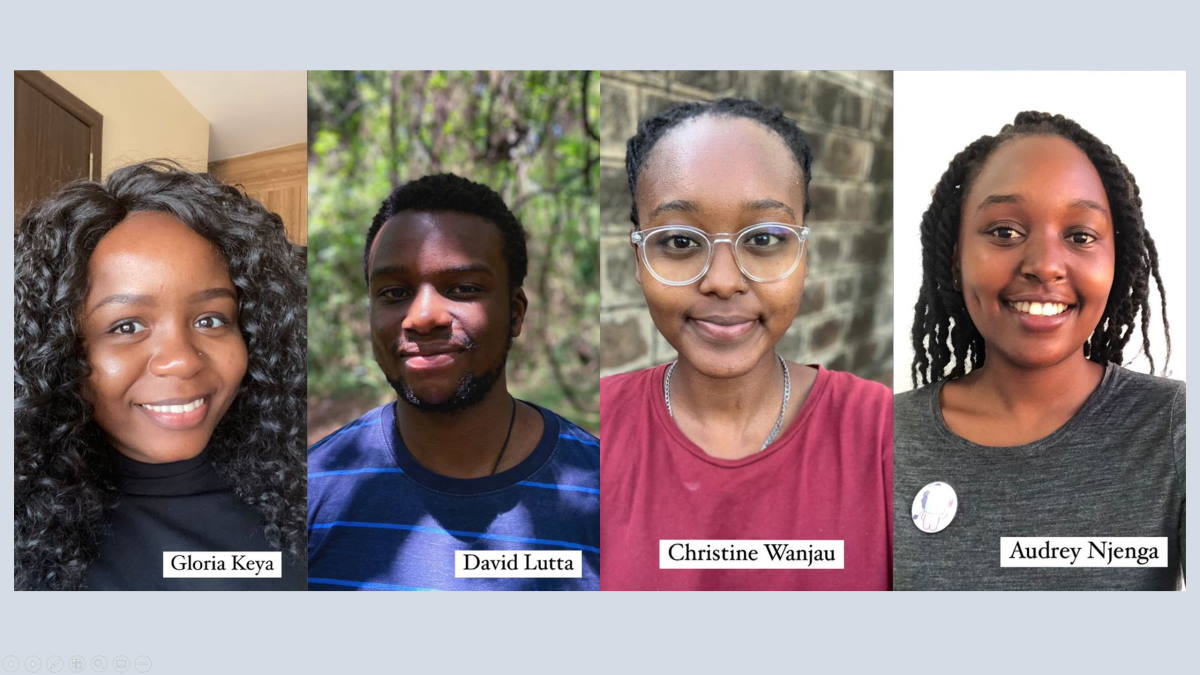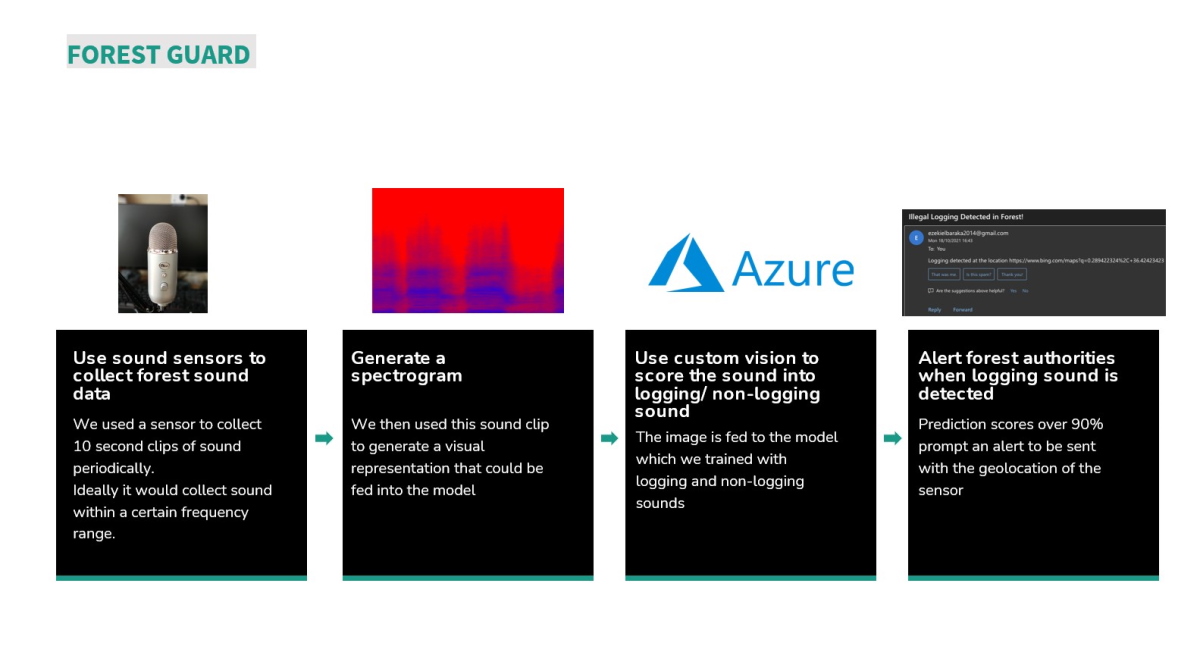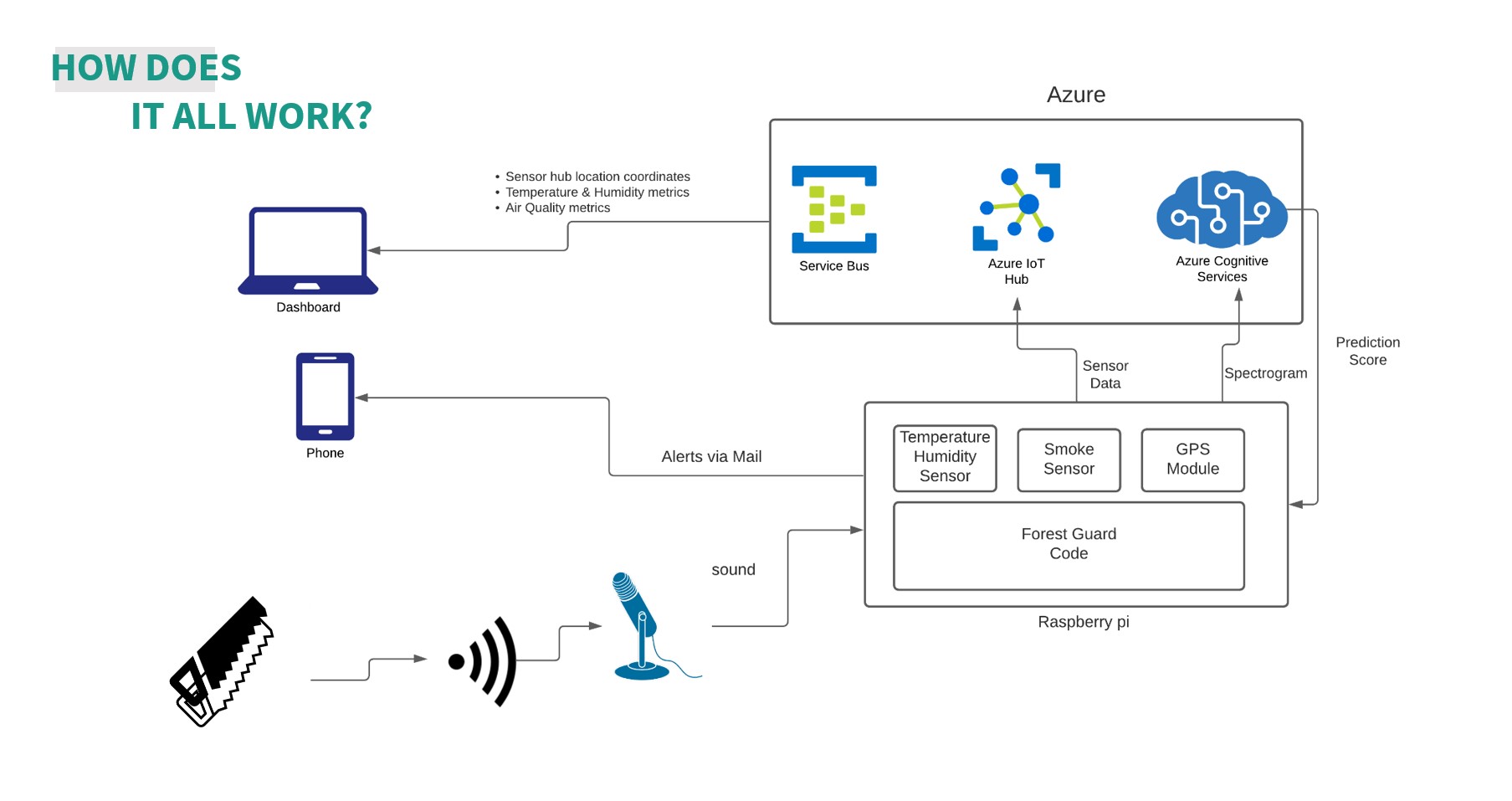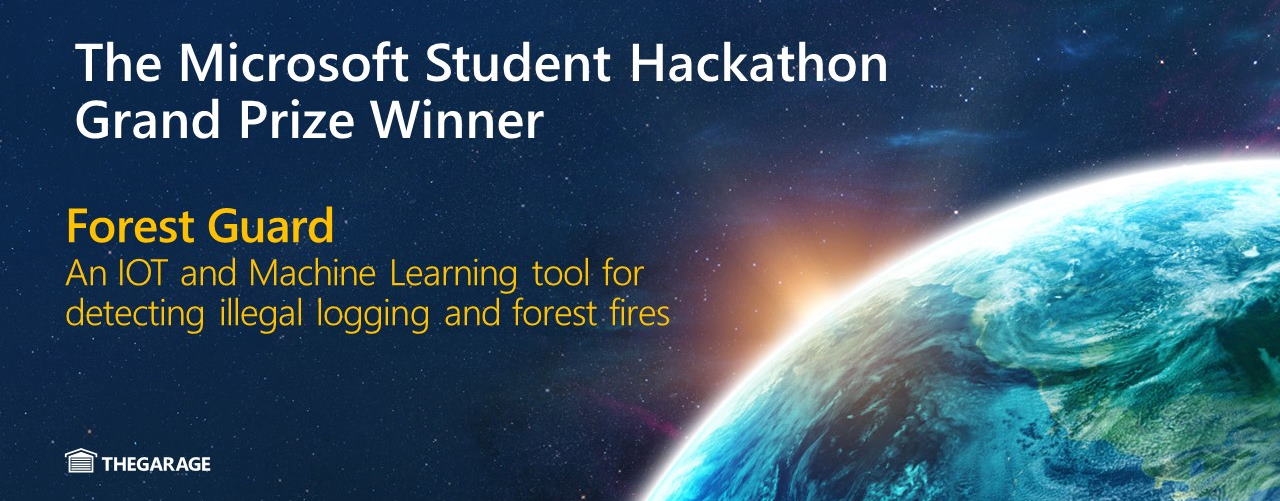Microsoft Student Hackathon Winner, Forest Guard, is an IoT and machine learning tool for illegal logging and forest fire detection.
The 2021 Microsoft Student Hackathon – hosted by The Microsoft Garage and run concurrently with the Microsoft Global Hackathon this year – offered Microsoft summer intern 2021 alumni and their friends a chance to hack real-world challenges in a structured environment, complete with coaching and access to Microsoft technologies to help them realize their ideas. Students from 22 countries came together virtually in October to hack solutions for Sustainability, Society, Education, and Ability.
“Students and interns have a long history of enthusiastic participation in the Global Hackathon, using the opportunity to connect to Microsoft people, technology, and problems that they care about,” said Steve Scallen, Senior Director of University Engagement at the Microsoft Garage. “Keeping students engaged with our technology ensures that new waves of professionals are ready to build unique and impactful solutions for everyone. We find that students and schools value the opportunity to apply the fundamental skills acquired in their programs to important and relevant real-world problems.”
This year’s Student Hackathon Grand Prize Winners completed their internships in September and chose to extend their Microsoft experience by forming a hackathon team while completing their final year of academic studies.
“We wanted to create an opportunity after their Microsoft internship for the students to stay connected to Microsoft and use the skills and knowledge they acquired in a new project and challenge that reflected their own passion,” Scallen said. “We were also pleased to see how many Intern alumni took advantage of the opportunity to invite their friends and share their own Microsoft experience.”
The winning team

Gloria Keya, David Lutta, Christine Wanjau, Audrey Njenga
Meet Gloria Keya, David Lutta, Christine Wanjau, and Audrey Njenga – the creative force behind Forest Guard, this year’s Grand Prize-Winning project. They chose the Hack for Earth challenge due to a shared passion for sustainability, and developed a new way to detect illegal logging powered by Microsoft Azure and IoT technologies.
The team are all Computer Science majors at universities in East Africa – Gloria and Christine at the University of Nairobi in Kenya (UoN), Audrey at the African Leadership University based in Rwanda, and David at the Jomo Kenyatta University of Agriculture and Technology, also in Nairobi. Microsoft has maintained a large and growing footprint in Africa since the 1990s, and established one of two Africa Development Centers in Nairobi in 2019.
“The Forest Guard team distinguished themselves with their passion for an important local sustainability challenge, their effectiveness in leveraging a portfolio of Microsoft technologies, clarity of how their solution could be impactful, and their commitment to utilizing their individual areas of expertise,” Scallen said. “They were all summer interns at Microsoft, and they all have offers to come back, which they’ve accepted. We are very excited they have chosen to start their professional careers at Microsoft.”
David started hacking back in high school, winning 3rd place in an international hackathon held in Romania. Both Gloria and Audrey also started in high school, joining an all-girls’ hackathon called Technovation, which sparked Gloria’s enduring interest in computer science, and inspired Audrey to organize her school’s first hackathon, Hack4Climate. Christine discovered hacking just as the COVID pandemic hit, working on the Digital Matatus transit project, a collaboration between UoN, MIT, Columbia University, and Groupshot.
They learned about the student hackathon opportunity during the internship program, and David suggested they form a team. “We all had some interest in the Hack for Earth Challenge as well as IoT,” Audrey said. “After brainstorming, we settled on creating a solution to illegal logging. Climate change is an unfortunate reality, and deforestation is one of the contributors to it. We wanted to solve a problem that was widespread and relevant here in Kenya.”
Over the course of just a week, they conceived, built, and tested Forest Guard – a real-time on-site deforestation sensor and alert system that detects and reports dangerous or illegal activity in protected forests.
The challenge
Forest protection is an issue the whole team takes both seriously and personally. David’s family lives in an area of Kenya not only stricken by unregulated forestry, but also by animal poaching and climate change, and he hopes Forest Guard will be a part of the solution. “Illegal logging is just one of many problems facing Kenya’s forests,” he said.
Gloria said she sees Hack for Earth as a “noble cause,” and noted the particular danger to indigenous forest cover, whose rapid disappearance from the landscape remains largely unmonitored. “It is alarming the rate at which we are losing tree cover here in Kenya. Over the next couple of years, we will be beyond the point of recovery.”
The solution and technology
In places where we can’t always have eyes, Forest Guard gives us ears – and thanks to Microsoft technologies like Azure Cognitive Services, IoT Hub, and Power BI, it even has a brain to make decisions based on what the unit overhears, create readable images called spectrograms, and alert appropriate human support. Environmentalists, engineers, and scientists have tried to solve this problem before, but many current methods rely on satellite data to remote-sense loss of forest cover over time. Forest Guard puts the sensor right on the ground and can be trained to recognize hallmarks of illegal activity. As Christine explains, “Forest Guard can be used where illegal logging and forest fires are common. Forest Guard will enhance the response time for such situations.”

Forest Guard uses sensors to generate a spectogram of forest sounds which are fed into Azure machine learning model for detection
Sounds are translated into spectrograms, each with a readable signature that can detect the presence of chainsaws and heavy machinery, and even telltale signs of forest fire. When concerning noise signatures are detected, the Forest Guard unit sends a signal to appropriate authorities.
“We know in Kenya parks are using sensors for anti-poaching and camera traps, and it would be good to also see the Forest Guard included (to protect the natural resources as well as the wildlife),” Audrey said. “Many forests are understaffed, especially in developing countries. Forest Guard could help automate the monitoring of illegal logging in forests by using IoT and machine learning technology.”

Diagram of how sound and other sensor information like temperature is fed through the Forest Guard system using IoT and Azure Cognitive Services
David said access to tools and documentation allowed them to overcome the learning curve that comes with adopting any new technology. “Microsoft technologies played a huge role in our project and without them I highly doubt we would have been able to complete Forest Guard. We were able to get Azure credits to use during the hackathon which proved to be really helpful as we were able to use Azure Cognitive Services to detect illegal logging,” he said. “We used Visual Studio Code as our primary coding environment, and technologies such as Azure Cognitive Services, IoT Hub, and Power BI were really helpful and so simple to integrate into our work.”
Audrey was gratified to see that with a little bit of research and education, they could produce real results in a short span of time – a necessary element of a successful hackathon project considering the team only had a week to take Forest Guard from concept to a working prototype. “It was fantastic to see that we could implement very complex technologies in a few steps.”
Hacking virtually
This was the first time hacking virtually for most of the team, but they said they were well-prepared by the preceding internship, which due to COVID was also conducted virtually this year.
“Hacking virtually was new but we were able to make use of collaboration software such as Microsoft Teams,” Christine said. “We organized for our meetings to be in the evening since we all had classes during the day.” Gloria added that the team dynamic and load-sharing were also key to their success. “Everyone played their part well and we were all willing to help one another whenever we got stuck. We determined roles based on everyone’s prior experience with various technologies. For the technologies that none of us was familiar with, we would all research them and present our findings during our daily standup meetings.”
What’s next?
All four winners said they plan to stay in touch and to continue their work on Forest Guard after graduation and even into their careers at Microsoft. “We’d really like to see this become a real product,” Audrey said. “As we wrap up our final year of studies, we are conducting further research on illegal logging and refining Forest Guard, and then we will fully dive into it post-graduation.”
They will have plenty of opportunity to continue hacking in their new roles. Soon after the Forest Guard team begins work as fulltime software engineers at Microsoft Nairobi in 2022, The Garage will be opening a new location right on the Nairobi campus so they can continue to hack on what matters most to them using the very technologies they will be developing at Microsoft. The Garage – with 12 physical locations in major cities around the world and more coming online soon – is a central driver of hack culture at Microsoft, delivering programs and experiences to employees all year round in the form of talks, workshops, and coaching, all leading up to the annual Microsoft Global Hackathon – the largest private event of its kind in the world.
Microsoft and The Garage thank the Forest Guard team for their ingenious use of Microsoft technologies to address a global issue that affects us all. We can’t wait to see what comes next for Forest Guard and from the creative minds of our four new software engineers.
“It’s inspiring and heartwarming to see how students so strongly relate to our culture of Diversity and Inclusion, Making a Difference, Customer Obsession, One Microsoft, and Growth Mindset,” Scallen said. “Their unique and fresh perspectives – using their own lived experiences at their own schools and in their own communities – fuel passion for making a difference in the lives of people around the world.”

